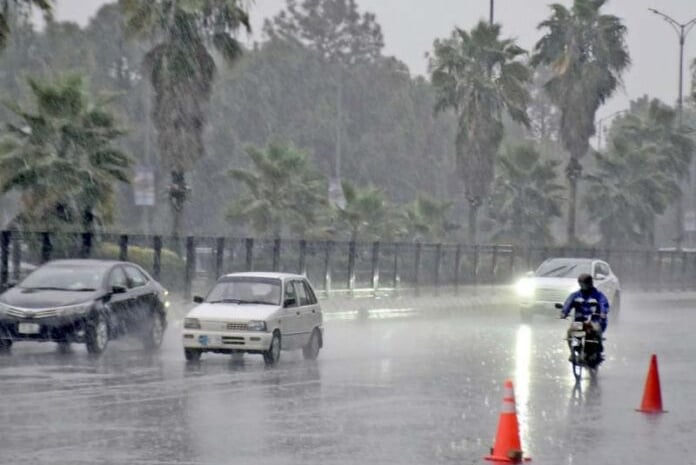Pakistan Weather Alert: Heavy Rainfall, Urban Flooding Expected from August 4, 2025
PMD warns of heavy rainfall from August 4–7 in Punjab, KP, Kashmir, and GB. Urban flooding and landslides likely. Public advised to stay alert.
Raja Awais Ali
8/3/20252 min read


Heavy Rain and Flood Alerts as Monsoon Intensifies in Pakistan from August 4
A powerful new monsoon spell is expected to hit Pakistan starting August 4, 2025, continuing through August 7, with heavy rain, thunderstorms, and strong winds forecast in various regions. The Pakistan Meteorological Department (PMD) has issued alerts for Islamabad, Rawalpindi, Murree, Galliyat, upper Punjab, Khyber Pakhtunkhwa (KP), Azad Kashmir, and Gilgit-Baltistan, warning of urban flooding, landslides, and travel disruption, especially in hilly and low-lying areas.
PMD reports that the monsoon intensity will rise due to a strengthening westerly wave, resulting in widespread downpours in northern regions. Areas like Muzaffarabad, Neelum Valley, Swat, Mansehra, Abbottabad, and Skardu are at a higher risk of flash floods and slope erosion between August 5 and 7.
In major urban centers such as Rawalpindi and Islamabad, drainage issues may lead to water accumulation and flash floods. Historically, August brings over 300 mm of rain to these cities, making this a particularly dangerous period for densely populated regions.
While much of Sindh and Balochistan will likely remain dry or receive isolated light rain, coastal and northeastern parts of Sindh may see moderate showers around August 6. According to PMD, the monsoon in southern areas may extend into late September, longer than the usual season.
To ensure public safety, the National Disaster Management Authority (NDMA) and Provincial Disaster Management Authorities (PDMAs) have mobilized emergency response units. Residents have been advised to avoid non-essential travel, especially to vulnerable tourist destinations like Murree, Galliyat, and northern valleys.
The PMD has emphasized the risk of:
Urban flooding in low-lying cities.
Landslides in hilly terrain.
Blocked roads and transportation disruptions.
Authorities urge the public to:
Stay updated through official weather alerts.
Avoid travel during peak rain hours.
Follow safety protocols and evacuation notices if necessary.
This rainfall period serves as a reminder of the growing impact of climate change on Pakistan’s weather patterns. Erratic monsoon cycles, aging infrastructure, and unplanned urban expansion continue to worsen the effects of seasonal rains each year.
In conclusion, August 4–7 will be a critical period for Pakistan’s weather. While the rain may bring relief from summer heat, the risks of flooding and damage cannot be ignored. Citizens are strongly encouraged to stay vigilant, follow official advisories, and take preventive measures to ensure their safety and that of their families.